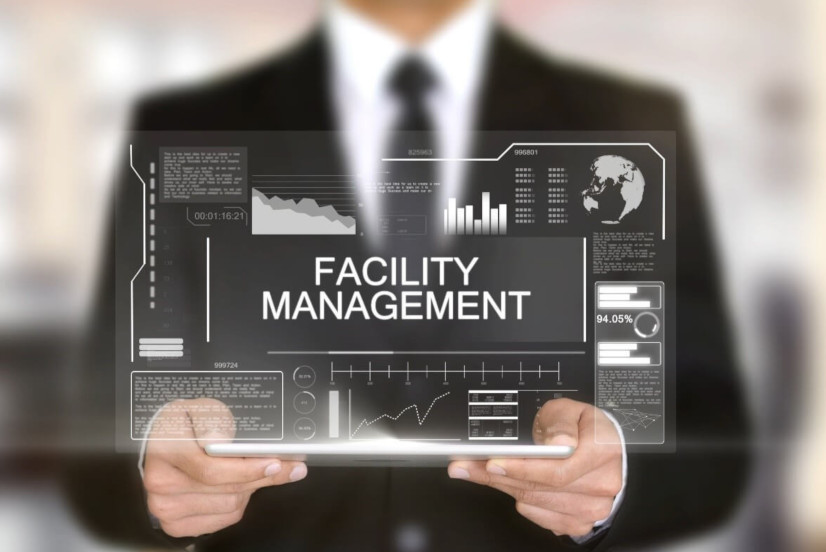Secret Patterns Shaping the Future of Center Administration in 2024
As we look ahead to 2024, the landscape of facility management is poised for substantial makeover, driven by several vital patterns. The combination of wise building technologies and a shift towards data-driven decision-making promise to improve operational effectiveness while prioritizing sustainability in practice.
Smart Building Technologies

Smart structure innovations include a broad variety of systems, consisting of smart illumination, cooling and heating controls, and protection systems. By incorporating these systems, facility supervisors can monitor and adjust criteria in real-time, causing significant reductions in power waste and functional prices. For example, clever sensing units can identify occupancy levels and adjust lighting and temperature as necessary, making sure that power is just utilized when required.
Moreover, these innovations promote enhanced information collection, permitting organizations to track usage patterns and recognize opportunities for additional renovations. The implementation of clever building technologies not just adds to sustainability objectives yet likewise produces much healthier workplace that can improve staff member productivity and contentment.
As we relocate into 2024, the adoption of wise structure modern technologies will likely speed up, showing a wider shift in the direction of even more intelligent, responsive, and sustainable center monitoring techniques.
Data-Driven Decision Making
Progressively, organizations are leveraging data-driven choice making to improve facility management methods. By using information analytics, facility supervisors can obtain actionable understandings that significantly improve operational effectiveness and resource allowance. The assimilation of innovative modern technologies, such as IoT sensing units and real-time surveillance systems, allows the collection of huge quantities of information on structure efficiency, occupancy rates, and energy usage.
This wealth of details enables center supervisors to recognize fads, predict upkeep needs, and proactively address problems before they escalate. As an example, predictive analytics can forecast equipment failings, lowering downtime and repair service prices. In addition, data visualization tools help with much better communication among stakeholders, making certain that notified choices are made collaboratively.
Moreover, data-driven approaches boost calculated preparation by making it possible for facility supervisors to assess the effectiveness of present practices and make educated choices pertaining to investments in innovation or facilities. As organizations significantly prioritize operational quality, data-driven decision making is poised to become a foundation of successful facility administration strategies in 2024 and past. Eventually, the capability to utilize data properly will encourage companies to develop more reliable, effective, and durable facilities.
Sustainability and Environment-friendly Practices
The emphasis on data-driven choice making normally straightens with the expanding concentrate on sustainability and environment-friendly techniques within facility management. As companies progressively focus on environmental obligation, center managers are leveraging analytics to optimize resource use, lower waste, and reduce carbon impacts. This critical approach enables the combination of energy-efficient systems, such as LED lighting, clever HVAC controls, and renewable resource resources right into center operations.
In addition, the implementation of helpful site sustainable techniques expands past energy intake. Center managers are promoting and embracing green products recycling initiatives to develop a circular economic climate within their facilities. This not just improves the ecological profile of the organization but also cultivates a society of sustainability among employees.
Conformity with environmental guidelines is another vital element driving the fostering of environment-friendly techniques. By using data analytics, center supervisors can keep an this page eye on conformity metrics and recognize locations for renovation, guaranteeing adherence to international and local sustainability criteria.
Crossbreed Job Models
A considerable change towards hybrid job models is improving the landscape of facility management in 2024. This paradigm combines in-office and remote job, requiring a reevaluation of space utilization, source appropriation, and worker interaction methods. Organizations are significantly identifying the importance of versatile work spaces that accommodate diverse requirements and choices.
Center managers must adjust by executing versatile office styles that support collaborative efforts while supplying areas for focused work. This includes the combination of innovation to facilitate seamless interaction and collaboration amongst remote and in-office staff members. Smart structure services, outfitted with sensors and analytics, enable real-time monitoring of area usage, enabling organizations to enhance their atmospheres effectively.
Moreover, hybrid job designs emphasize the need for effective center monitoring that focuses on worker experience. This incorporates not just modern technology and space design yet additionally the growth of policies that promote a well balanced work-life dynamic. As firms browse this shift, the role of center management ends up being essential in creating a dexterous office that promotes performance and drives organizational success. Fundamentally, the crossbreed work version is changing center administration, motivating an aggressive technique to fulfill the advancing needs of the labor force.
Boosted Resident Wellness
As companies accept hybrid work models, an enhanced emphasis on occupant wellness is coming to be integral to facility management techniques. Facility Management. This shift recognizes that a healthy and pleased workforce click for info directly influences performance and retention rates. Facility supervisors are currently focusing on environments that promote physical and psychological wellness, incorporating aspects such as all-natural lighting, biophilic style, and obtainable wellness resources

Innovation plays a crucial duty in this evolution. Smart building systems can monitor ecological factors and readjust setups in real-time, ensuring ideal comfort levels - Facility Management. Feedback mechanisms, such as tenancy sensors and employee surveys, permit facility managers to constantly fine-tune wellness campaigns based on resident demands.

Final Thought
In 2024, the future of facility management will certainly be substantially influenced by the combination of clever structure innovations and data-driven decision-making, fostering boosted operational performance. These trends jointly highlight the advancing landscape of facility management in feedback to modern difficulties and opportunities.
Center supervisors are taking on environment-friendly materials and promoting recycling initiatives to develop a circular economy within their centers.A considerable shift towards hybrid work versions is improving the landscape of center monitoring in 2024.In addition, hybrid job versions highlight the need for efficient facility administration that prioritizes employee experience.As organizations welcome hybrid work versions, an enhanced emphasis on owner wellness is ending up being integral to facility management strategies.In 2024, the future of center management will be substantially influenced by the assimilation of clever building modern technologies and data-driven decision-making, cultivating improved functional performance.